
This article is more than
1 year oldRiots have erupted on the streets of Paris after France’s left defeated the far-right in an unexpected election victory.
Footage shows bonfires burning in streets as police in riot gear clash with demonstrators and used tear gas to disperse rioters.
Protests allegedly set off smoke bombs, burnt bikes and threw Molotov cocktails.
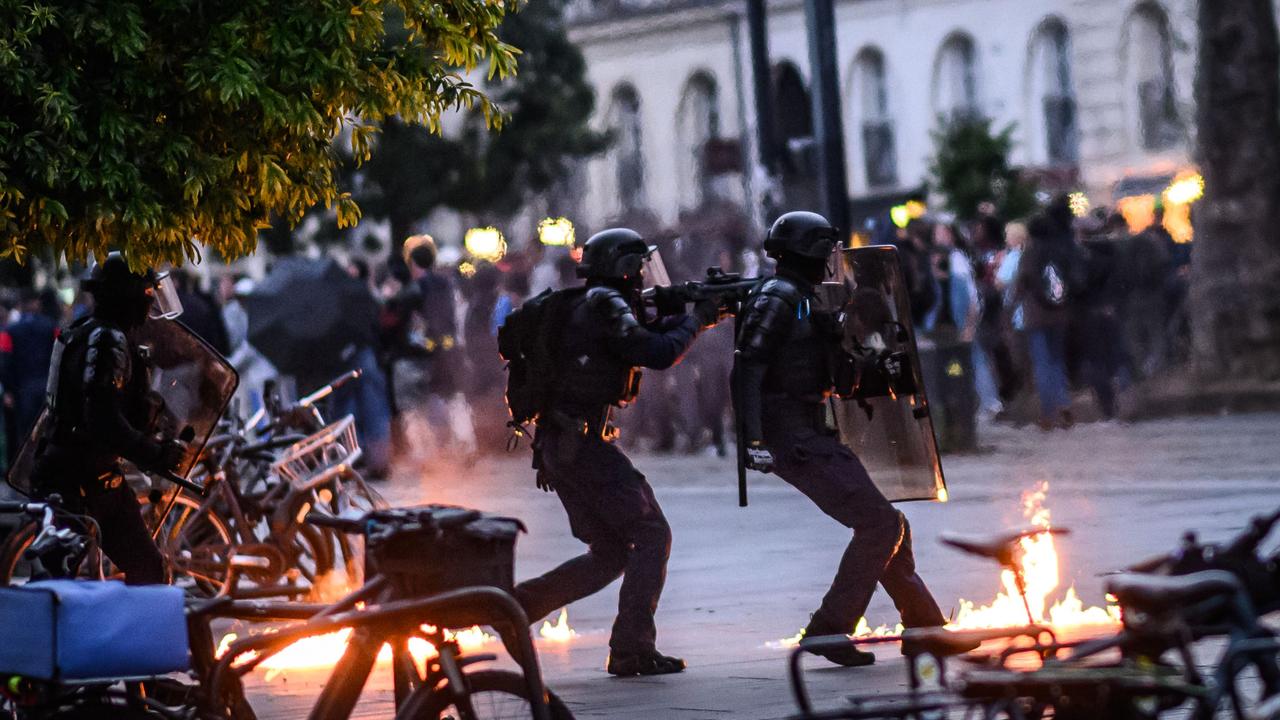
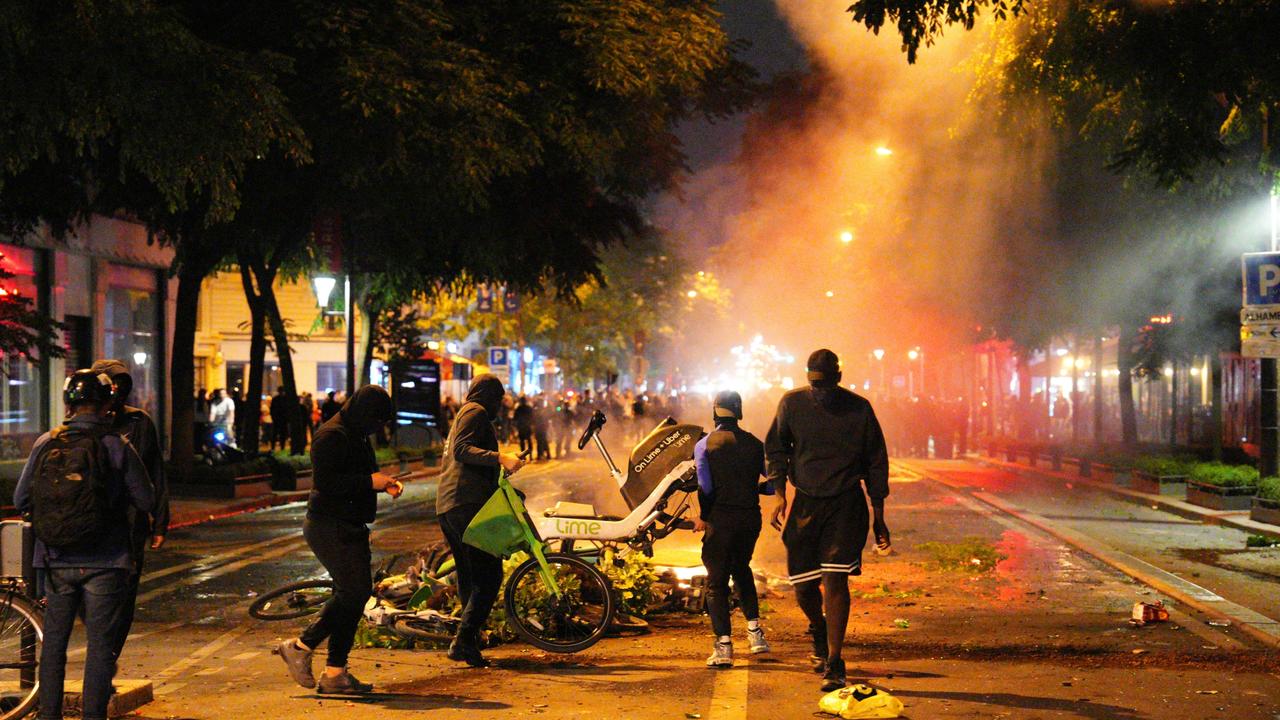
The outcome of the legislative elections, called by President Emmanuel Macron three years ahead of schedule in a bid to reshape the political landscape, saw no group winning an absolute majority.
This leaves France without any clear path to forming a new government three weeks before the Paris Olympics.
Prime Minister Gabriel Attal is due to submit his resignation to Macron on Monday but has also made clear he is ready to stay on in a caretaker capacity as weeks of political uncertainty loom.
The left is emerging as the biggest group in the new parliament but has yet to even agree on a figure who it would want to be the new prime minister.
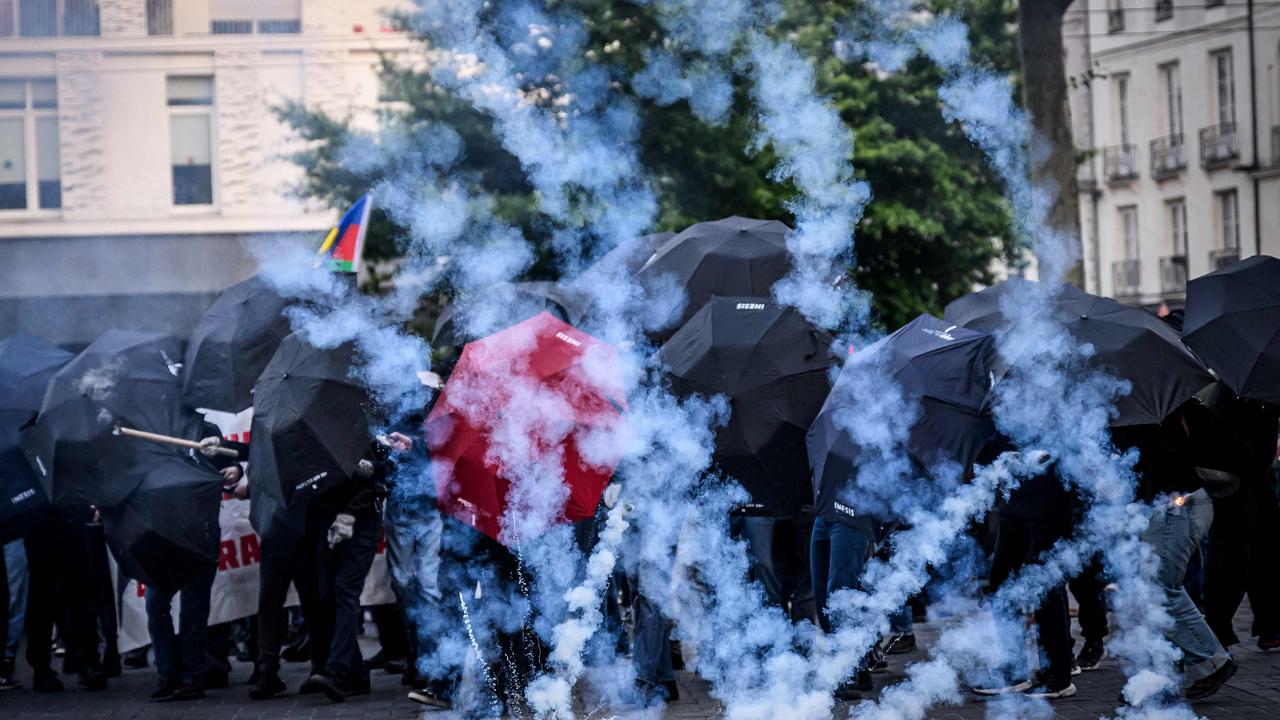
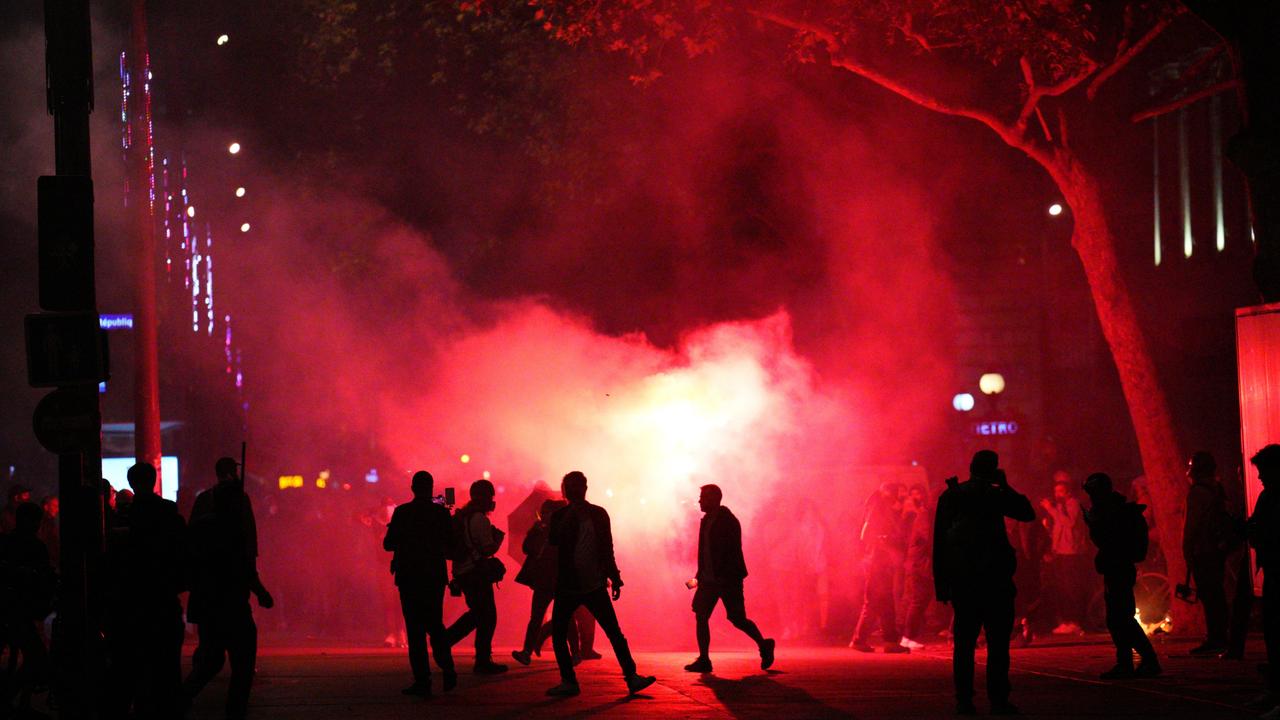
The results from the second round of the roll were a major disappointment for the far-right National Rally (RN) of Marine Le Pen, even if her forces are set to boast about their biggest ever contingent in parliament.
Macron’s centrist alliance will have dozens fewer members of parliament, but held up better than expected.
Projections by major polling agencies showed the NFP set to be the largest bloc in the new National Assembly with 177 to 198 seats, Macron’s alliance on 152 to 169 seats and the RN on 135 to 145 seats.
This means no group is even close to the 289 seats needed for an absolute majority and it remains unclear how a new government can be formed.
Macron, who has yet to speak in public about the projections, is calling for “prudence and analysis of the results”, an aide, who asked not to be named. said.
The left rejoice
As the far-right grapple with the shock upset, a large crowd of left-wing activists erupted in joy in Paris.
“I’m really happy, there’s this crazy energy and I’m getting the chills,” Marie Delille, a philosophy student, in the capital’s Stalingrad Square, said.
“It feels good right now, but we’re still waiting for the final results,” she added at the gathering of the hard-left France Unbowed (LFI) party.
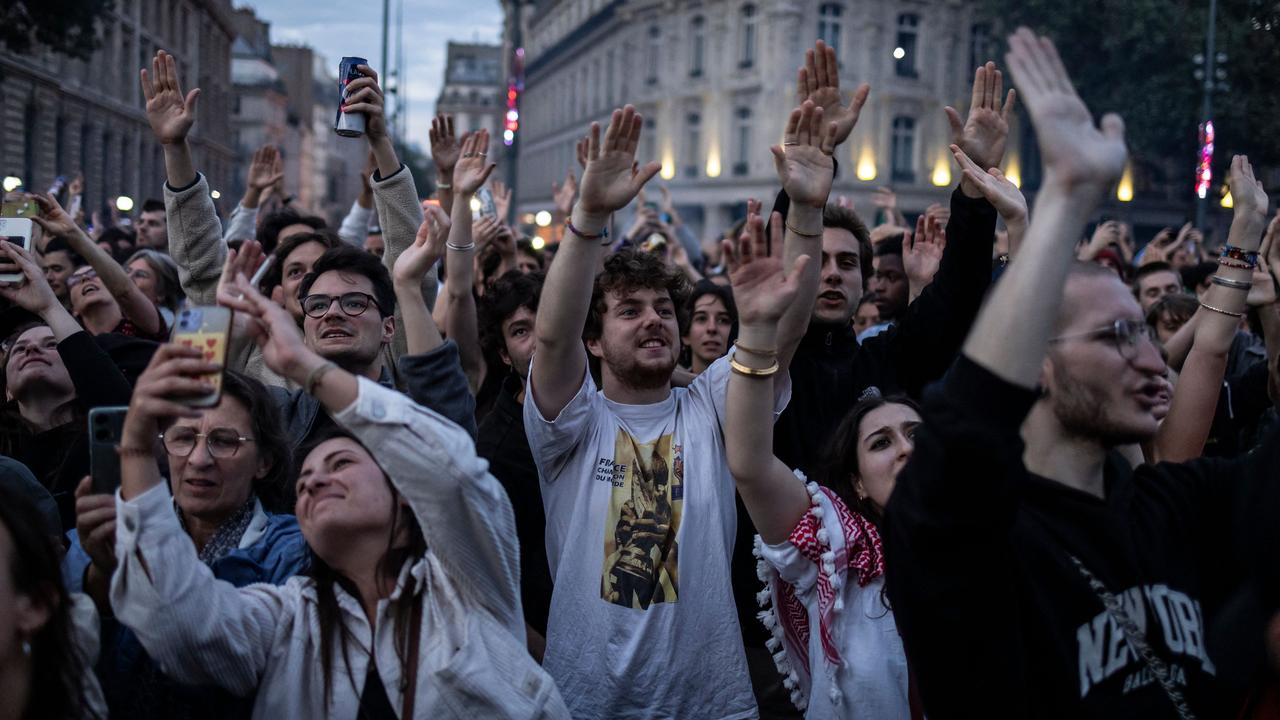
Nearby, fellow LFI activist Dalil Diab was also visibly moved.
“We’re relieved, there’s a lot of hope. There’s a lot of hope for the future of France, for the left,” the young man who works in transport logistics said.
Hugo Chevalley, a history student, was more tempered in his enthusiasm.
“It’s a victory, but it’s a relative victory,” he said, referring to the large chunk of seats the RN is likely to have gained.
“So we have to continue to fight. It’s not over … But it’s a relief, that’s for sure. We weren’t expecting it.” Hundreds of supporters of the left-wing New Popular Front also gathered to celebrate in the capital’s Republique Square.
“We’ve won, we’ve won,” members of the crowd chanted under a blue, white and red France flag marked with the words “France is weaved from migrations”.
“No to the RN, no to Macron,” read one placard held up by a participant.
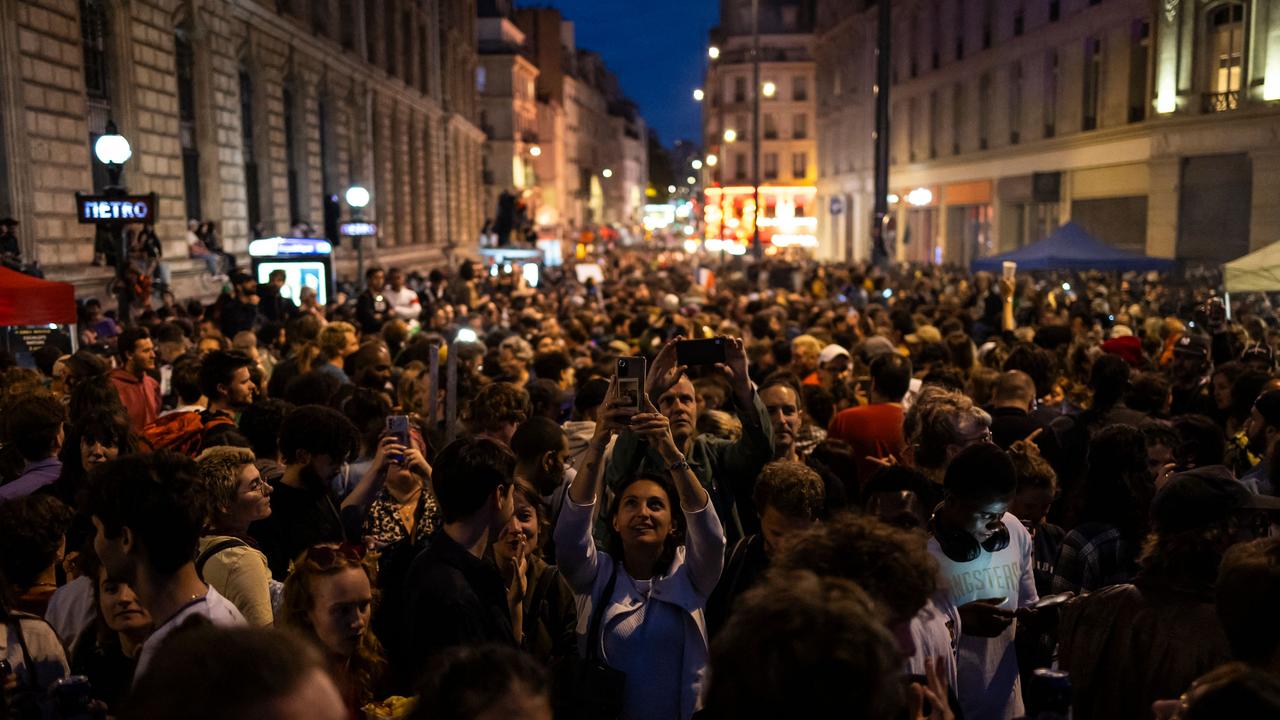
‘Historic occasion’
Firebrand leftist Jean-Luc Melenchon, leader of LFI and the controversial figurehead of the NFP coalition, demanded that the left be allowed to form a government.
“Its constituent parts, the united left, have shown themselves equal to the historic occasion and in their own way have foiled the trap set for the country,” he said.
Only one week ago, some polls had indicated the RN could win an absolute majority with Le Pen’s 28-year-old lieutenant Jordan Bardella becoming prime minister.
Instead, he expressed fury.
Bardella dubbed the local electoral pacts that saw the left and centrists avoid splitting the anti-RN vote as an “alliance of dishonour”.
He said it had thrown “France into the arms of Jean-Luc Melenchon’s extreme left”.
Le Pen, who wants to launch a fourth bid for the presidency in 2027, declared: “The tide is rising. It did not rise high enough this time, but it continues to rise and, consequently, our victory has only been delayed.”
Last week saw more than 200 tactical-voting pacts between centre and left-wing candidates in seats to attempt to prevent the RN winning an absolute majority.
This has been hailed as a return of the anti-far right “Republican Front” first summoned when Le Pen’s father Jean-Marie faced Jacques Chirac in the run-off of 2002 presidential elections.
There had been fears a strong RN showing would weaken France’s resolve in backing Ukraine in its fight against the Russian invasion.
Polish Prime Minister Donald Tusk said the result would lead to “disappointment” in Russia and “relief” in Ukraine. Spanish premier Pedro Sanchez welcomed France’s “rejection of the far right”.
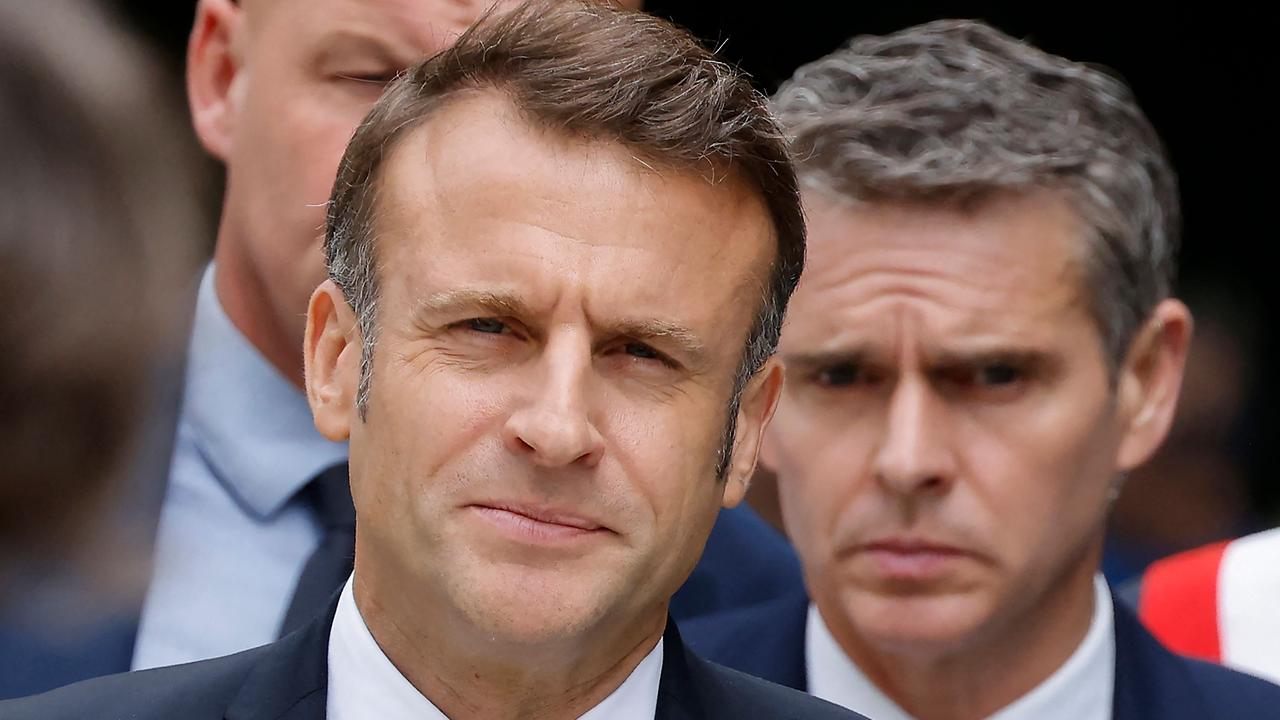
Tense campaign
The election campaign, the shortest in French history, was marked by a febrile national mood, threats and violence — including racist abuse — against dozens of candidates and canvassers.
In key individual battles, Le Pen’s sister Marie-Caroline narrowly lost out on being a politician, but former president Francois Hollande will return to frontline politics as a Socialist member of parliament.
The question for France now is if this alliance of last resort can support a stable government, dogged by a huge RN bloc in parliament led by Le Pen herself as she prepares a 2027 presidential bid.
“The decision to dissolve the National Assembly, which was supposed to be a moment of clarification, has instead led to uncertainty,” said former prime minister and Macron ally Edouard Philippe.